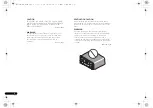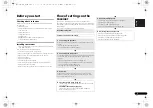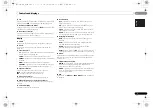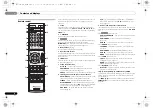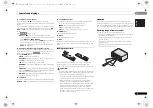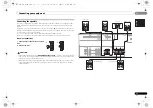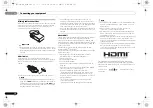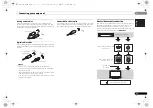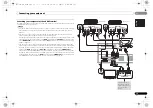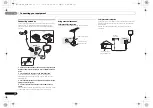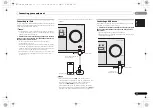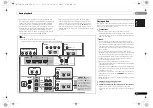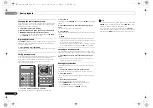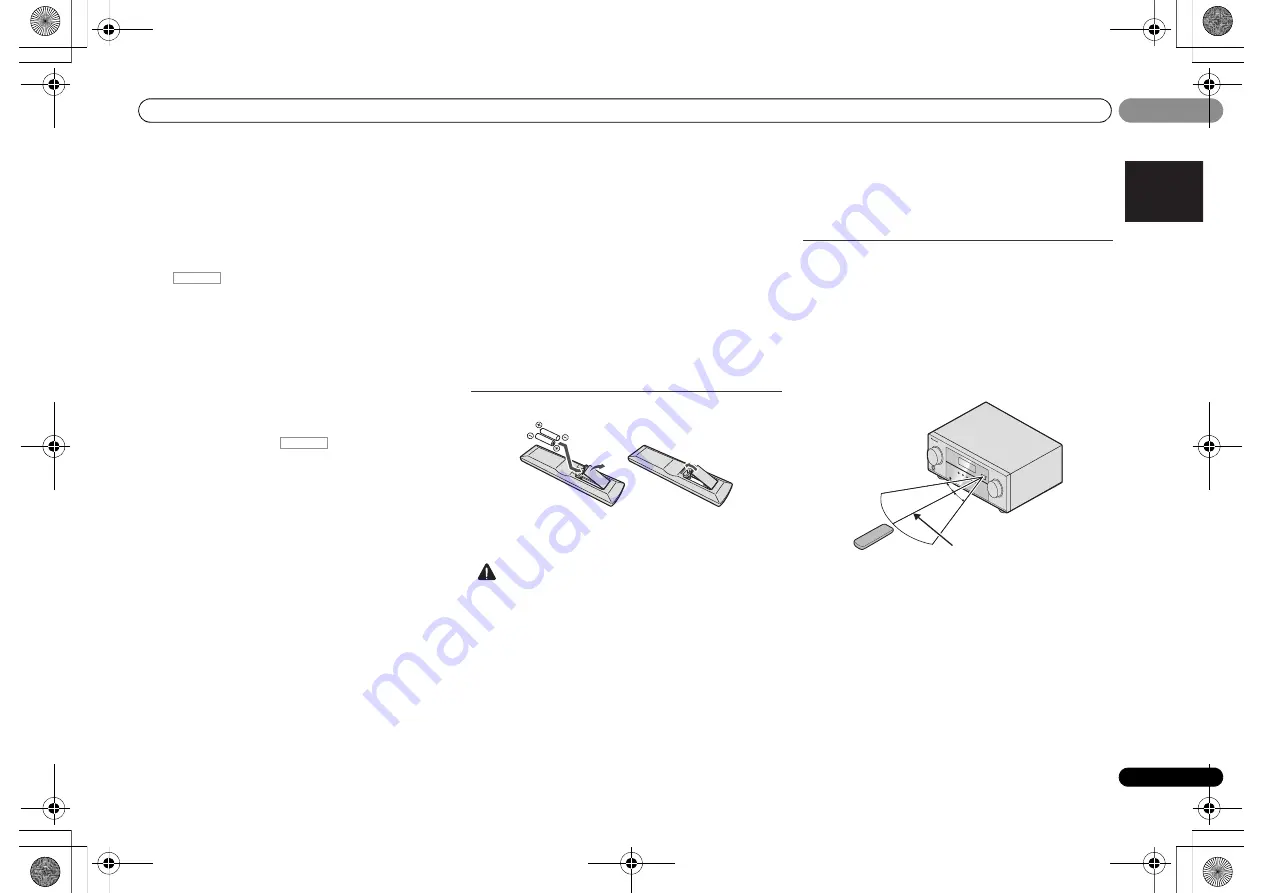
01
01
Controls and displays
9
En
English
ϜН
Español
11 Component control buttons
The main buttons (
,
, etc.) are used to control a
component after you have selected it using the input function
buttons.
The controls above these buttons can be accessed after you
have selected the corresponding input function button (
BD
,
DVD
and
CD
). These buttons also function as described
below.
Press
first to access:
BASS –/+
,
TRE –/+
– Use to adjust Bass or Treble.
• These controls are disabled when the listening mode is
set to
DIRECT
or
PURE DIRECT
.
• When the front speaker is set at
SMALL
in the Speaker
Setting and the X.over is set above 150 Hz, the
subwoofer channel level will be adjusted by pressing
BASS –/+
(page 30).
12 Number buttons and other component controls
Use the number buttons to directly select a radio frequency
(page 23) or the tracks on a CD, etc. There are other buttons
that can be accessed after
is pressed. (For
example
MIDNIGHT
, etc.)
SB CH
– Cannot use for this unit.
CH SELECT
– Press repeatedly to select a channel, then
use
LEV +/–
to adjust the level (page 30).
LEV +/–
– Use to adjust the channel level.
MIDNIGHT
– Switches to Midnight or Loudness listening
(page 27).
SPEAKERS
– Use to change the speaker system on or off.
When the
SP OFF
is selected, no sound is output from the
speakers connected to this receiver.
DIMMER
– Dims or brightens the display. The brightness
can be controlled in four steps.
13
SOURCE
Turns on or off the power of the Pioneer DVD/DVR units when
BD
,
DVD
or
CD
is selected using the input function buttons.
14 TV CONTROL buttons
These buttons can control only be used with Pioneer TVs.
– Use to turn on/off the power of the TV.
INPUT
– Use to select the TV input signal.
CH +/–
– Use to select channels.
VOL +/–
– Use to adjust the volume on your TV.
15 /–
Use to set the listening volume.
16 MUTE
Mutes/unmutes the sound.
17 DISP
Switches the display of this unit. The listening mode, sound
volume or input name can be checked by selecting an input
source.
Loading the batteries
The batteries included with the unit are to check initial
operations; they may not last over a long period. We
recommend using alkaline batteries that have a longer life.
CAUTION
• Incorrect use of batteries may result in such hazards as
leakage and bursting. Observe the following precautions:
-
Never use new and old batteries together.
-
Insert the plus and minus sides of the batteries properly
according to the marks in the battery case.
-
Batteries with the same shape may have different
voltages. Do not use different batteries together.
-
When disposing of used batteries, please comply with
governmental regulations or environmental public
institution
’
s rules that apply in your country/area.
-
When inserting the batteries, make sure not to damage the
springs on the battery’s (–) terminals. This can cause
batteries to leak or overheat.
WARNING
Do not use or store batteries in direct sunlight or other
excessively hot place, such as inside a car or near a heater.
This can cause batteries to leak, overheat, explode or catch
fire. It can also reduce the life or performance of batteries.
Operating range of remote control
The remote control may not work properly if:
• There are obstacles between the remote control and the
receiver’s remote sensor.
• Direct sunlight or fluorescent light is shining onto the
remote sensor.
• The receiver is located near a device that is emitting
infrared rays.
• The receiver is operated simultaneously with another
infrared remote control unit.
RECEIVER
RECEIVER
30°
7 m
30°
VSX-324-K-P_DLXE.book 9 ページ 2013年3月21日 木曜日 午前9時17分


